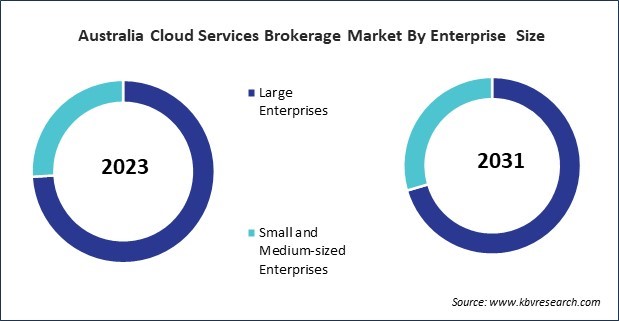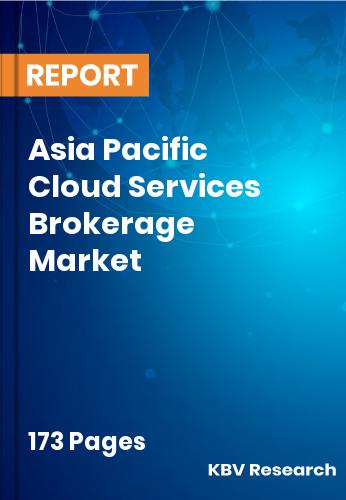The Asia Pacific Cloud Services Brokerage Market would witness market growth of 17.3% CAGR during the forecast period (2024-2031).
The China market dominated the Asia Pacific Cloud Services Brokerage Market by Country in 2023, and would continue to be a dominant market till 2031; thereby, achieving a market value of $2,790.5 million by 2031. The Japan market is registering a CAGR of 16.6% during (2024 - 2031). Additionally, The India market would showcase a CAGR of 18.1% during (2024 - 2031).

Security remains one of the top concerns for businesses migrating to the cloud, making security and identity management a critical application of CSBs. These platforms provide identity and access management (IAM) solutions, multi-factor authentication (MFA), encryption services, and continuous security monitoring to safeguard enterprise cloud environments.
The adoption of cloud service brokerage solutions has surged as enterprises recognize the need for centralized cloud management. One of the primary drivers behind this adoption is the shift towards multi-cloud strategies, where businesses leverage multiple cloud providers to meet specific workload demands.
In China, the software and IT services sector generated 12.33 trillion yuan ($1.73 trillion) in revenue in 2023, reflecting a 13.4% year-on-year increase. Rising investments in cloud computing, AI, and digital infrastructure have further fuelled the sector’s growth. As enterprises expand their cloud-based operations, there is an increasing need for Cloud Services Brokerage to optimize cloud resources, ensure regulatory compliance, and facilitate seamless integration across multiple cloud platforms. The alarming 23% increase in cybercrime incidents in Australia in 2023, with reports averaging one every six minutes, underscores the urgent need for enhanced cloud security and risk management solutions. As businesses adopt cloud computing faster, concerns over data breaches, ransomware attacks, and regulatory compliance are intensifying. This has led to a growing demand for CSBs that offer security-focused cloud management, compliance automation, and threat intelligence integration. In conclusion, China’s booming IT sector and Australia’s escalating cybersecurity threats are key market growth drivers.
Free Valuable Insights: The Global Cloud Services Brokerage Market is Predict to reach USD 32.78 Billion by 2031, at a CAGR of 16.7%
Based on Platform, the market is segmented into Internal Brokerage Enablement, and External Brokerage Enablement. Based on Service, the market is segmented into Integration & Support, Automation & Orchestration, Billing & Provisioning, Migration & Customization, Security & Compliance, and Other Service. Based on Deployment, the market is segmented into Public, Hybrid, and Private. Based on Enterprise Size, the market is segmented into Large Enterprises, and Small and Medium-sized Enterprises. Based on End use, the market is segmented into IT & Telecommunications, BFSI, Government & Public Sector, Healthcare, Consumer Goods & Retail, Manufacturing, Energy & Utilities, and Other End Use. Based on countries, the market is segmented into China, Japan, India, South Korea, Australia, Malaysia, and Rest of Asia Pacific.
By Platform
By Service
By Deployment
By Enterprise Size
By End use
By Country
Our team of dedicated experts can provide you with attractive expansion opportunities for your business.

